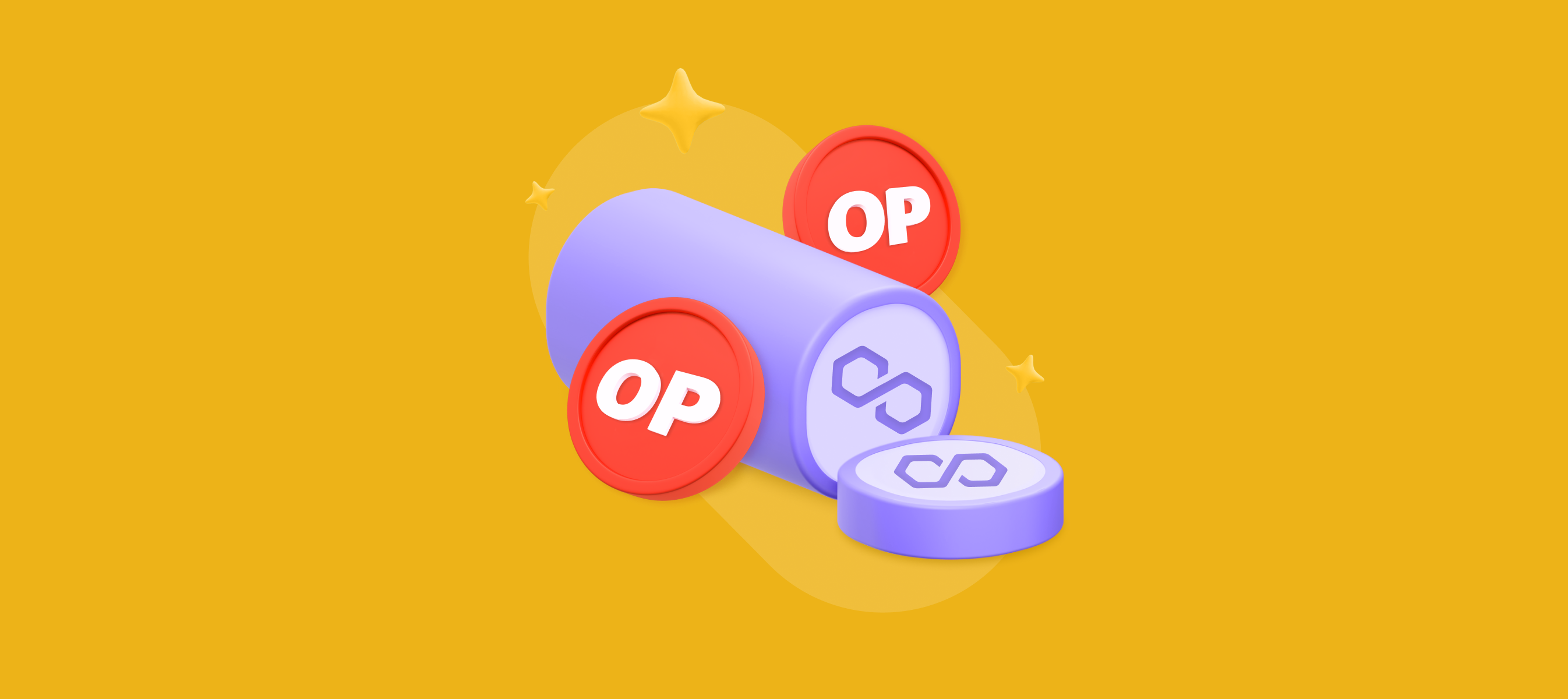Optimistic vs. Zero-Knowledge Rollups

This blog post will cover:
- Optimistic rollups
- Zero-Knowledge rollups
- Conclusion
As blockchain adoption proceeds, many projects face the growing issue of a lack of scalability and expensive fees. The tricky part is that solving this issue sometimes costs decentralization or security. Consequently, certain blockchains have chosen to adopt a Layer-2 solution known as rollups to address the problem of the mainnet overload. Rollups effectively divert the overwhelming transactions to a secondary chain.
This article will delve into two variations of this technology: optimistic rollups and zero-knowledge (ZK) rollups.
Optimistic rollups
Optimistic rollups operate on the premise of optimistic execution: most blockchain activities are considered valid and the verification is only used if there is a suspicion of fraud or dispute.
The rollup smart contract maintains the state of the underlying blockchain at a specific pre-transaction point in time. Validators can submit fraud proofs to the mainnet if they suspect malicious transactions or state transitions within the rollup. The mainnet then starts a dispute resolution process to see if the fraud proofs are valid and correct any wrong state transitions.
The advantages of this type of rollups include:
- They significantly enhance scalability because they decrease the volume of on-chain operations. For this reason, the confirmation times are faster, and fees are lower.
- Rollup participants benefit from heightened privacy since transaction details are not immediately exposed on the main blockchain.
Despite these pros, optimistic rollups might run into issues in terms of safety. They assume that most activities within the rollup are valid. In cases of malicious behavior or erroneous state transitions, users must rely on the main blockchain's dispute resolution mechanism, which can cause latency and dependence on the main chain's consensus process.
Optimism and Arbitrum utilize such rollups.
Zero-Knowledge rollups
ZK-rollup groups several transactions together, too, however, they employ mathematical techniques to generate proofs that validate the operations with minimal data revealed.
Validators act upon the transactions as well as compute the resulting state changes without involving the mainnet. These validators then generate ZK proofs that serve as cryptographic evidence of the operations' legitimacy without giving away data about what the transaction is exactly.
The summarized data, along with the proofs, are submitted to the main blockchain for verification. Once verified, the network accepts the new state resulting from the off-chain computation. This way, both the privacy and high scalability are on a decent level.
These are the main advantages of ZK-rollups:
- High scalability thanks to the processing of transactions off-chain.
- ZK-proofs provide robust cryptographic security and privacy. They offer mathematical guarantees that the computations and state transitions are valid without revealing confidential details about individual transactions or user balances.
However, implementing ZK-rollups can be computationally intensive.
Examples of networks utilizing ZK-rollups include Polygon, Orbis, and others.
Conclusion
In summary, both rollups are a good way out when considering the scaling problems of some blockchain networks. Optimistic rollups strike a balance between scalability and security. At the same time, ZK-rollups provide strong security and privacy guarantees. As the blockchain ecosystem continues to evolve, rollup solutions play a crucial role in facilitating broader adoption and unlocking the full potential of decentralized applications.

